 We have already seen how the Italian designers and consistently enough for the purpose to improve the quality of their light cruisers of the “condottieri”. However, with all the advantages come down to a decent level of protection, the armament remained the same — eight 152-mm guns, which, moreover, could not be called rapid-fire. Even on paper they are inferior competitors last generation from other countries. For example, the British, with their twelve 6-dyuymovymi, not to mention pyatnadcatiletnij the Japanese and the Americans. If the meeting with the latter seemed unlikely because of the terms of policy and geography, Britain remained among the most likely opponents. More likely the traditional “foe” was France, just started building a new strong light cruisers “La Galissoniere”. Were in the ranks “, condotieri” potentially lost a duel such formidable adversaries.
We have already seen how the Italian designers and consistently enough for the purpose to improve the quality of their light cruisers of the “condottieri”. However, with all the advantages come down to a decent level of protection, the armament remained the same — eight 152-mm guns, which, moreover, could not be called rapid-fire. Even on paper they are inferior competitors last generation from other countries. For example, the British, with their twelve 6-dyuymovymi, not to mention pyatnadcatiletnij the Japanese and the Americans. If the meeting with the latter seemed unlikely because of the terms of policy and geography, Britain remained among the most likely opponents. More likely the traditional “foe” was France, just started building a new strong light cruisers “La Galissoniere”. Were in the ranks “, condotieri” potentially lost a duel such formidable adversaries.
Read more
 In 1989, the company The Swatch Group Ltd. (Switzerland) engaged in the design compact city car of the original design, and in 1993, the company Mercedes-Benz has developed a feasibility study of production of this car. The first Smart prototype was presented to the public in September 1995 at the International motor show in Frankfurt. Production of mini-car and pre-sales in Europe began in July 1998.
In 1989, the company The Swatch Group Ltd. (Switzerland) engaged in the design compact city car of the original design, and in 1993, the company Mercedes-Benz has developed a feasibility study of production of this car. The first Smart prototype was presented to the public in September 1995 at the International motor show in Frankfurt. Production of mini-car and pre-sales in Europe began in July 1998. In 1989, the company The Swatch Group Ltd. (Switzerland) engaged in the design compact city car of the original design, and in 1993, the company Mercedes-Benz has developed a feasibility study of production of this car. The first Smart prototype was presented to the public in September 1995 at the International motor show in Frankfurt. Production of mini-car and pre-sales in Europe began in July 1998.
In 1989, the company The Swatch Group Ltd. (Switzerland) engaged in the design compact city car of the original design, and in 1993, the company Mercedes-Benz has developed a feasibility study of production of this car. The first Smart prototype was presented to the public in September 1995 at the International motor show in Frankfurt. Production of mini-car and pre-sales in Europe began in July 1998.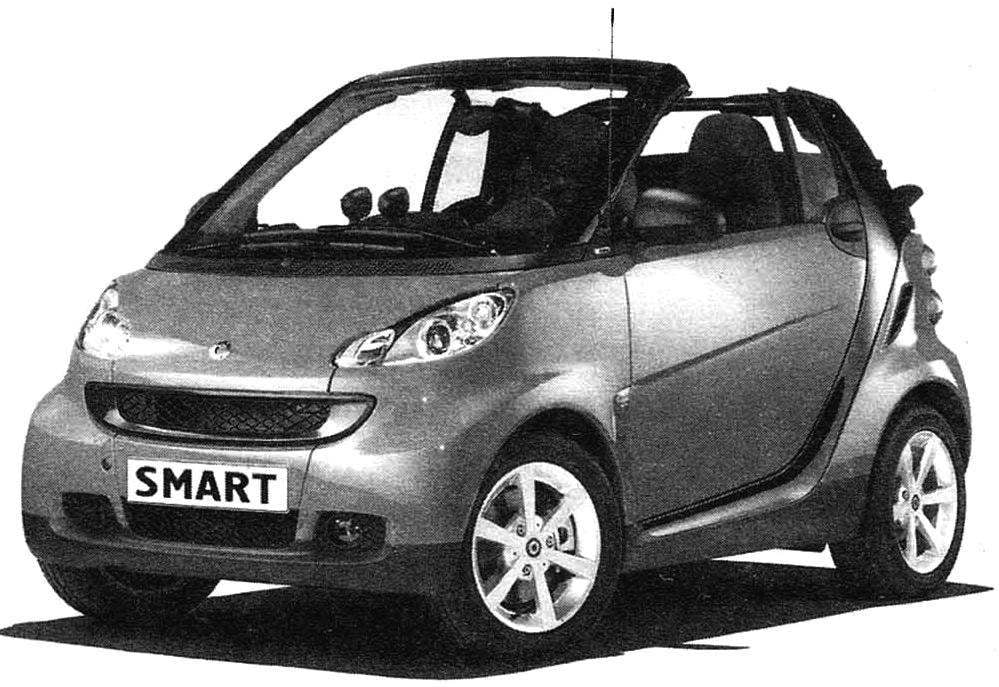

 As a rule, such date if marks any event, it is certainly not prosperous. But with the first British jet bomber “Canberra” the opposite happened: it was Friday, may 13, 1949 he made the first flight, and more than half a century faithfully served on different continents. Here and believe after that in signs!
As a rule, such date if marks any event, it is certainly not prosperous. But with the first British jet bomber “Canberra” the opposite happened: it was Friday, may 13, 1949 he made the first flight, and more than half a century faithfully served on different continents. Here and believe after that in signs!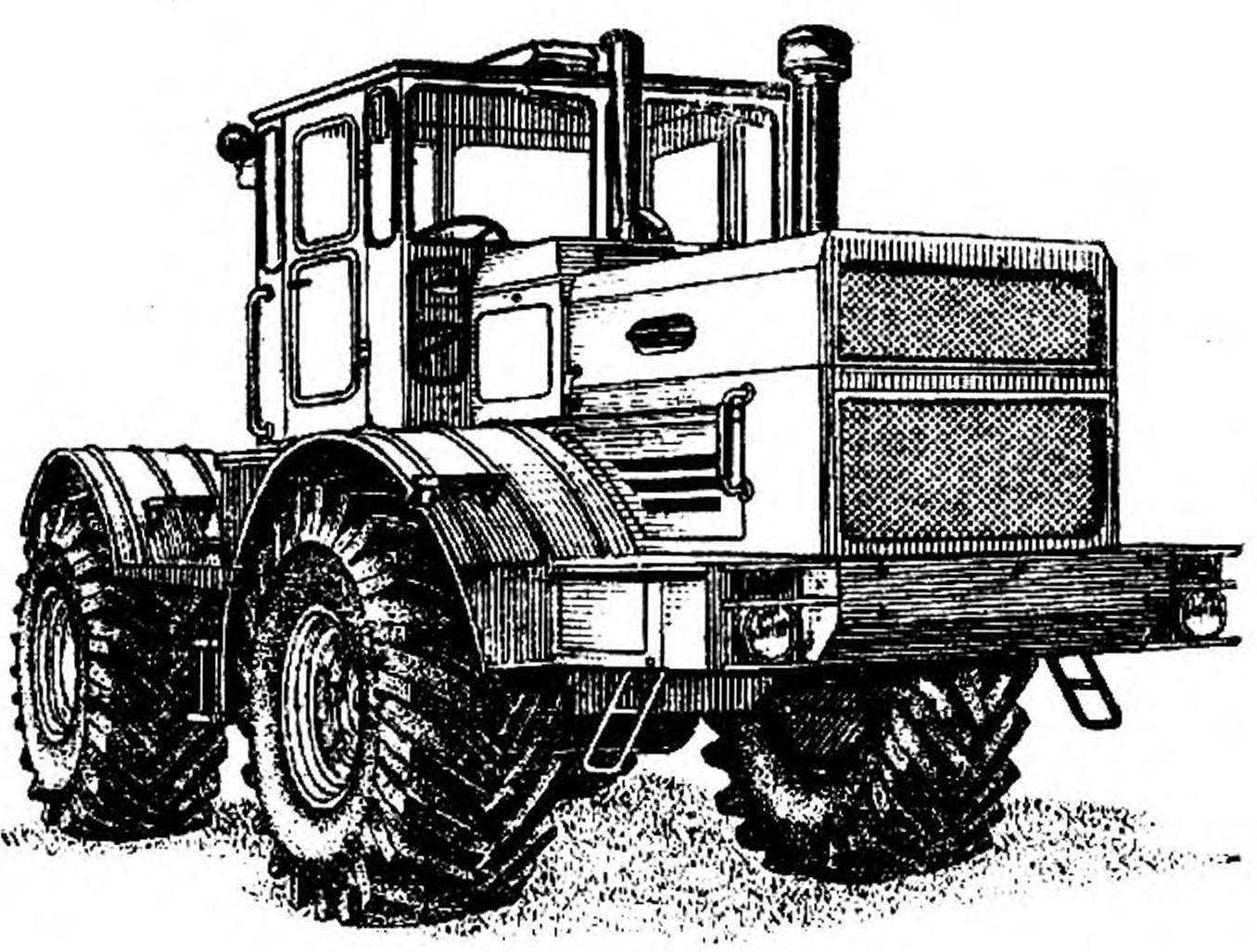
 Every few minutes the conveyor of the Leningrad production Association “Kirov plant” comes a brand new tractor K-701 “Kirovets”. Thousands of these machines working in the fields of the country. The operators proudly call “Kirova” steppe warriors. And their assessment is fair. K-701 is the most powerful agricultural tractor in the USSR. It features high efficiency, simple operation, comfortable cabin. Kirovets popular abroad. Witness the gold medals of international exhibitions and fairs in Budapest, Plovdiv, Zagreb. These tractors are being exported to Canada, Italy, Australia. More than six thousand of these surefire machines working in socialist countries.
Every few minutes the conveyor of the Leningrad production Association “Kirov plant” comes a brand new tractor K-701 “Kirovets”. Thousands of these machines working in the fields of the country. The operators proudly call “Kirova” steppe warriors. And their assessment is fair. K-701 is the most powerful agricultural tractor in the USSR. It features high efficiency, simple operation, comfortable cabin. Kirovets popular abroad. Witness the gold medals of international exhibitions and fairs in Budapest, Plovdiv, Zagreb. These tractors are being exported to Canada, Italy, Australia. More than six thousand of these surefire machines working in socialist countries.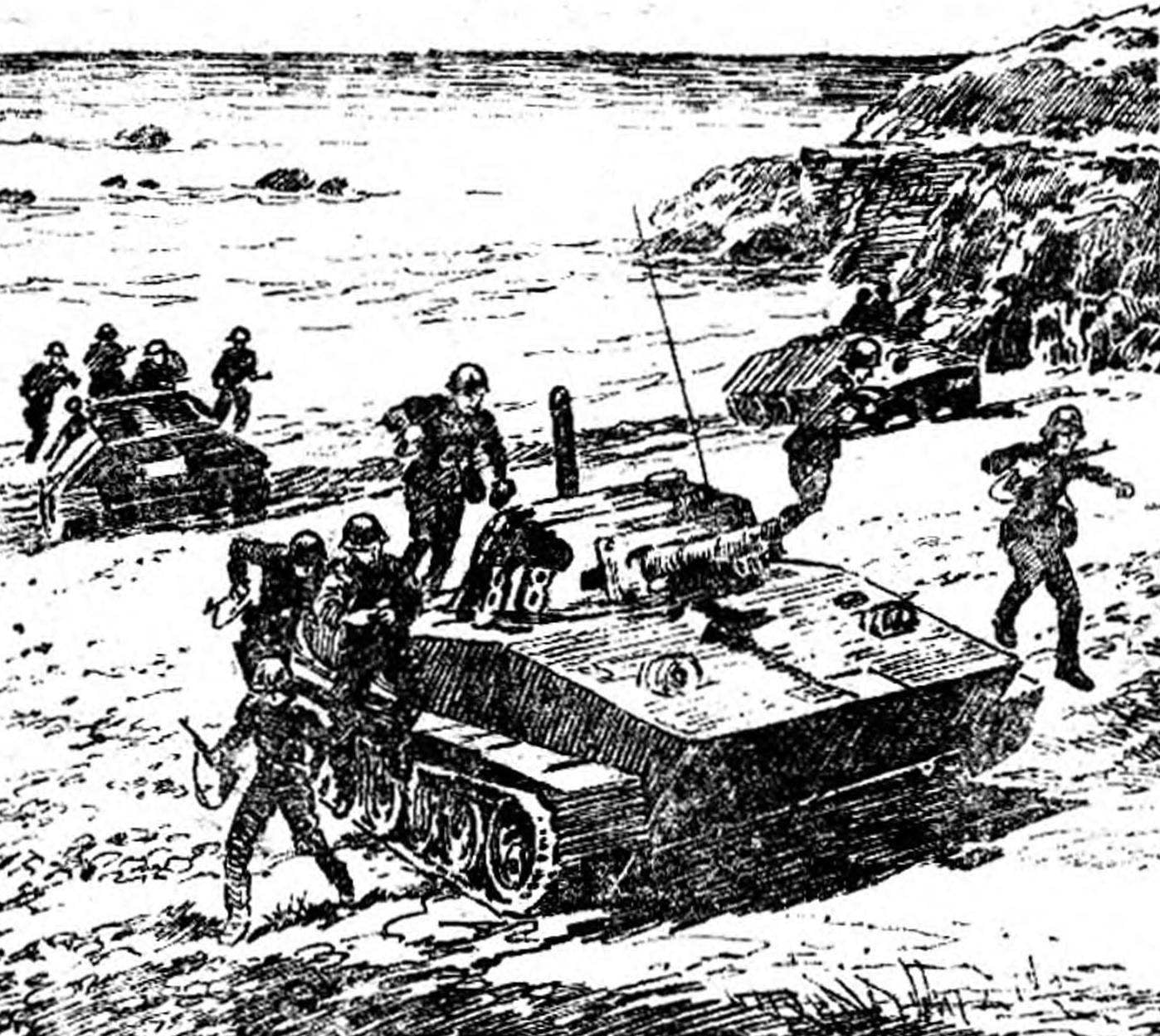
 Few people of Leningrad, occupancies that August day in 1935, near the Peter and Paul fortress, the Neva river, witnessed the unusual spectacle. On the river, confidently slicing through low, the wave, floated… tanks. Here all seven turned sharply to the shore, and a few minutes of armored amphibians were already on the sand. Thus ended a 600-kilometer test transition amphibious tanks T-37 on the rivers Luga, Shelon, lake Ilmen and further along the new Ladoga canal and the Neva river.
Few people of Leningrad, occupancies that August day in 1935, near the Peter and Paul fortress, the Neva river, witnessed the unusual spectacle. On the river, confidently slicing through low, the wave, floated… tanks. Here all seven turned sharply to the shore, and a few minutes of armored amphibians were already on the sand. Thus ended a 600-kilometer test transition amphibious tanks T-37 on the rivers Luga, Shelon, lake Ilmen and further along the new Ladoga canal and the Neva river.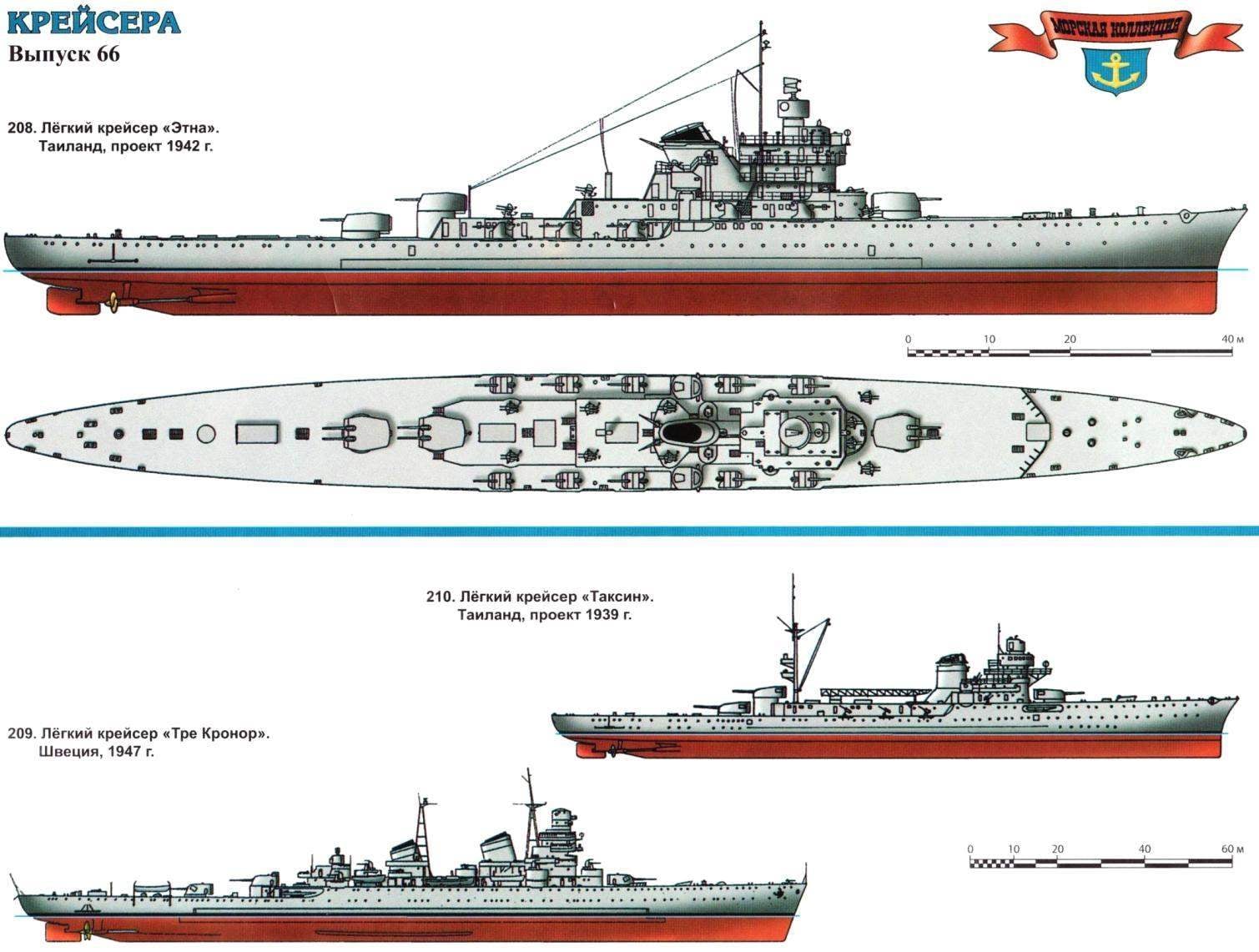
 We have already seen how the Italian designers and consistently enough for the purpose to improve the quality of their light cruisers of the “condottieri”. However, with all the advantages come down to a decent level of protection, the armament remained the same — eight 152-mm guns, which, moreover, could not be called rapid-fire. Even on paper they are inferior competitors last generation from other countries. For example, the British, with their twelve 6-dyuymovymi, not to mention pyatnadcatiletnij the Japanese and the Americans. If the meeting with the latter seemed unlikely because of the terms of policy and geography, Britain remained among the most likely opponents. More likely the traditional “foe” was France, just started building a new strong light cruisers “La Galissoniere”. Were in the ranks “, condotieri” potentially lost a duel such formidable adversaries.
We have already seen how the Italian designers and consistently enough for the purpose to improve the quality of their light cruisers of the “condottieri”. However, with all the advantages come down to a decent level of protection, the armament remained the same — eight 152-mm guns, which, moreover, could not be called rapid-fire. Even on paper they are inferior competitors last generation from other countries. For example, the British, with their twelve 6-dyuymovymi, not to mention pyatnadcatiletnij the Japanese and the Americans. If the meeting with the latter seemed unlikely because of the terms of policy and geography, Britain remained among the most likely opponents. More likely the traditional “foe” was France, just started building a new strong light cruisers “La Galissoniere”. Were in the ranks “, condotieri” potentially lost a duel such formidable adversaries.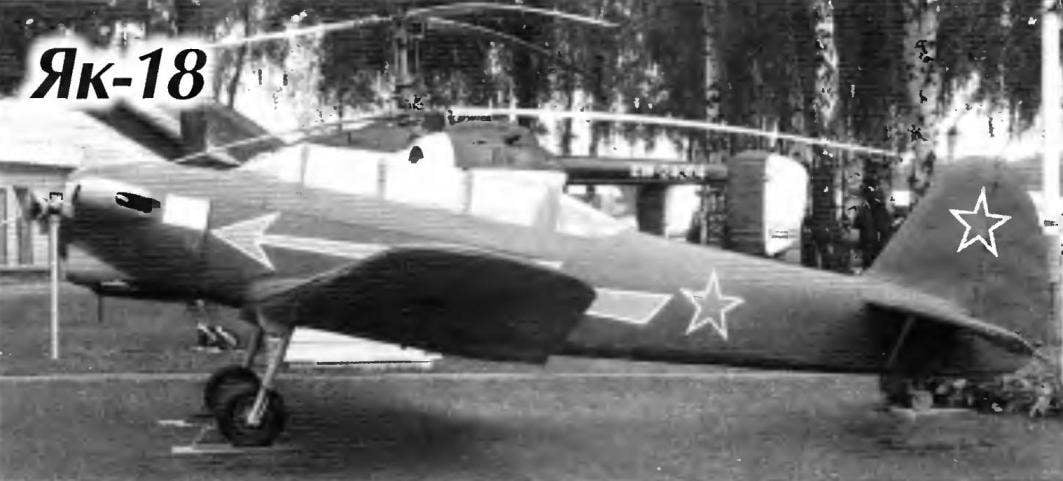
 Initial training aircraft Yak-18 was based on UT-2. Its first flight took place on may 6, 1946 (test pilot G. S. Klimushkin), and the second, with the more powerful M-11FR — may 17, 1946, According to the results of state tests, the car was adopted, and in 1947 he launched into serial production in plants: № 272 in Leningrad, No. 135 in Kharkov and # 116 at Arsenyev.
Initial training aircraft Yak-18 was based on UT-2. Its first flight took place on may 6, 1946 (test pilot G. S. Klimushkin), and the second, with the more powerful M-11FR — may 17, 1946, According to the results of state tests, the car was adopted, and in 1947 he launched into serial production in plants: № 272 in Leningrad, No. 135 in Kharkov and # 116 at Arsenyev.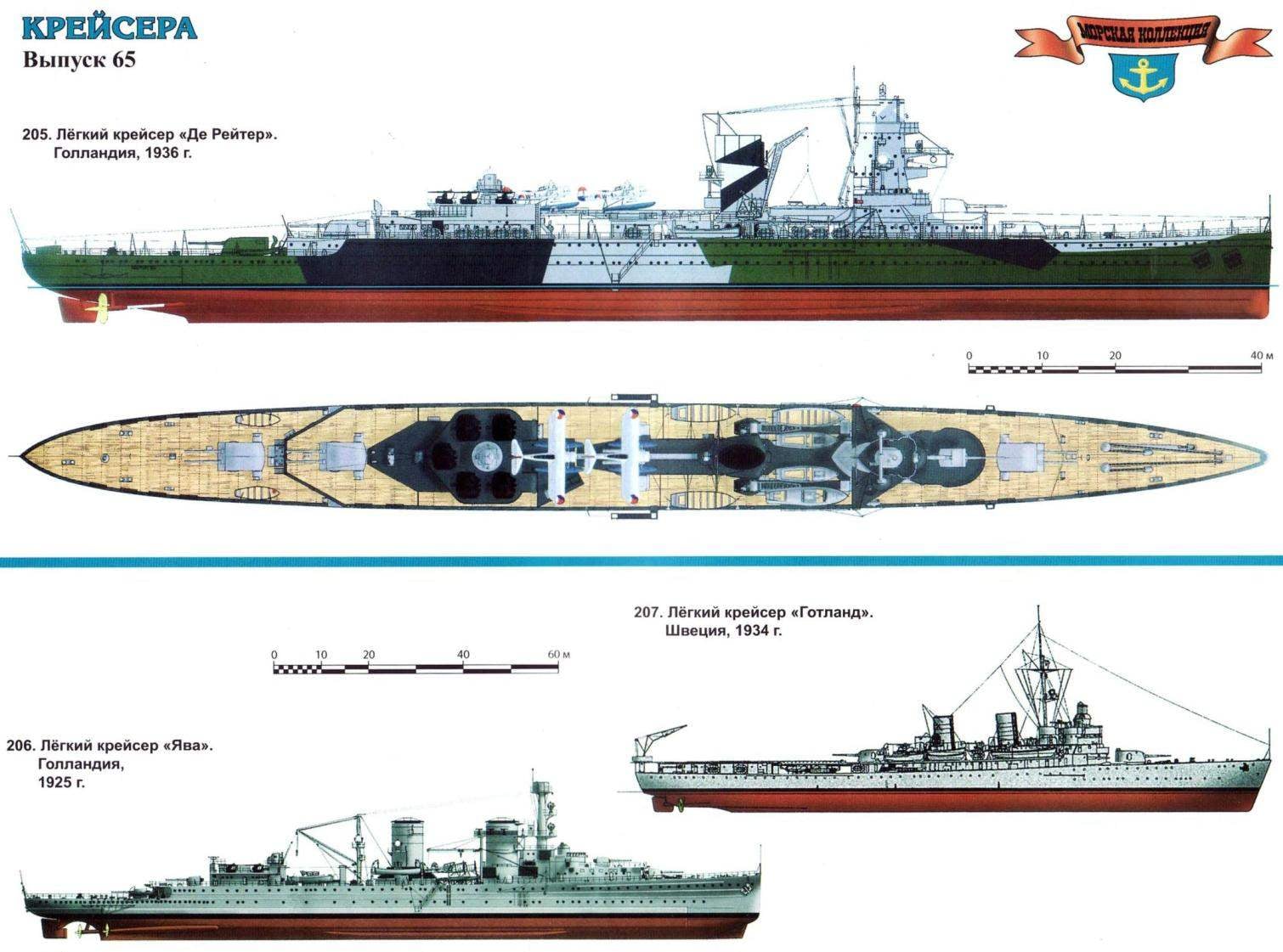
 After the First world war, in addition to shipbuilding giant — Britain and the major European players in the face of France, Italy, Germany and the Soviet Union, in quiet corners of Europe still remained small countries trying hard to develop a national military shipbuilding for their own projects. However, sometimes I had to resort to the “elders”. In the end, was born a very unique ships. And not in the last instance they proved to be just cruisers.
After the First world war, in addition to shipbuilding giant — Britain and the major European players in the face of France, Italy, Germany and the Soviet Union, in quiet corners of Europe still remained small countries trying hard to develop a national military shipbuilding for their own projects. However, sometimes I had to resort to the “elders”. In the end, was born a very unique ships. And not in the last instance they proved to be just cruisers.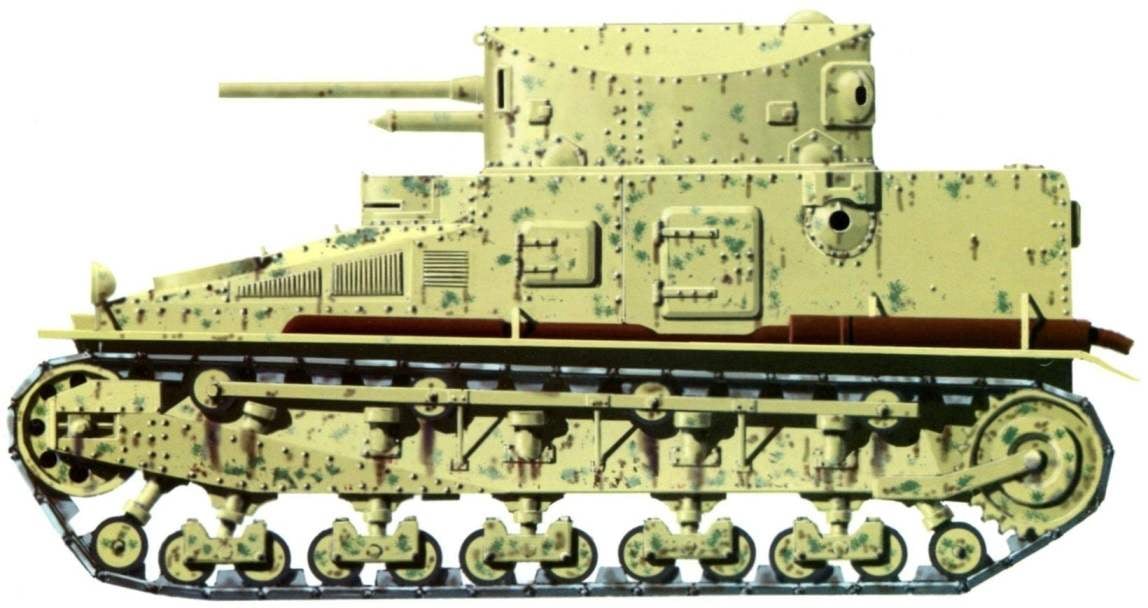
 The development of the project tanks for the British army in the early 1920s was run by the company “Vickers” — England’s largest manufacturer of weapons and armored vehicles. The new machine began to enter the army in 1922 and received specification of “Medium tank “Vickers” mark I” and the designation MK.I. Behind it rose the name of “Vickers”, “Medium”, she was also known as “Vickers” 12-ton”. Within ten years it was the only medium tank in the British army. The modification of the base sample had the designation MK.II, MK.II* (“star”) and MK.IIA issue 1926/1927.
The development of the project tanks for the British army in the early 1920s was run by the company “Vickers” — England’s largest manufacturer of weapons and armored vehicles. The new machine began to enter the army in 1922 and received specification of “Medium tank “Vickers” mark I” and the designation MK.I. Behind it rose the name of “Vickers”, “Medium”, she was also known as “Vickers” 12-ton”. Within ten years it was the only medium tank in the British army. The modification of the base sample had the designation MK.II, MK.II* (“star”) and MK.IIA issue 1926/1927.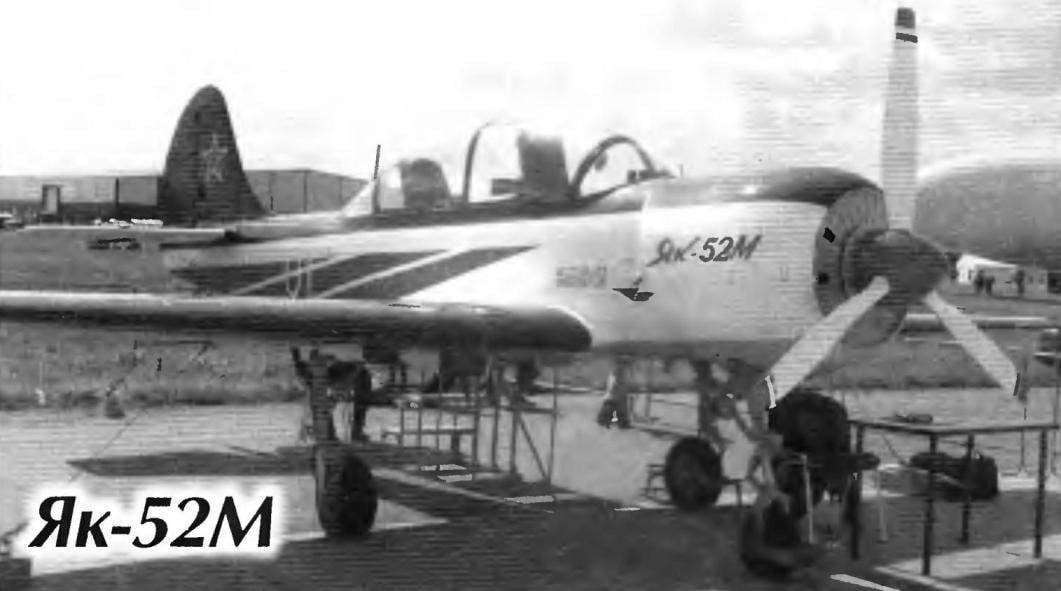
 In 2002, the air force developed tactical and technical requirements for the modernization of the Yak-52 training-Yak-52M for professional screening and initial flying training of future military pilots and pilots-sportsmen. Modernized Yak-52M distinguished with its new wing, which provides a guaranteed and safe stall the nose; the fuel tanks-caissons of the increased capacity of modern radio communication and navigation equipment, allowing to operate day and night in different weather conditions.
In 2002, the air force developed tactical and technical requirements for the modernization of the Yak-52 training-Yak-52M for professional screening and initial flying training of future military pilots and pilots-sportsmen. Modernized Yak-52M distinguished with its new wing, which provides a guaranteed and safe stall the nose; the fuel tanks-caissons of the increased capacity of modern radio communication and navigation equipment, allowing to operate day and night in different weather conditions.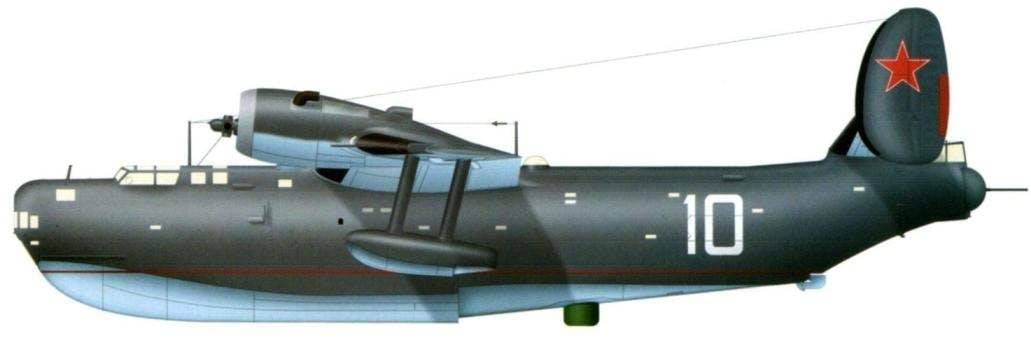
 The first post-war years in OKB G. M. Beriev was created long-range Maritime reconnaissance flying boat Be-6 — undoubtedly, staged the aircraft for the Russian naval aviation. For a starting point in the history of the be-6 should adopt the August of 1942, when G. M. Beriev sent to the people’s Commissariat of aviation industry explanatory note to “the Conceptual design of a sea scout open sea MDR-10”. Proposed heavy (weighing up to 22 000 kg) twin-engine flying boat with a wing type gull, two-keel plumage, a long range and powerful armament.
The first post-war years in OKB G. M. Beriev was created long-range Maritime reconnaissance flying boat Be-6 — undoubtedly, staged the aircraft for the Russian naval aviation. For a starting point in the history of the be-6 should adopt the August of 1942, when G. M. Beriev sent to the people’s Commissariat of aviation industry explanatory note to “the Conceptual design of a sea scout open sea MDR-10”. Proposed heavy (weighing up to 22 000 kg) twin-engine flying boat with a wing type gull, two-keel plumage, a long range and powerful armament.